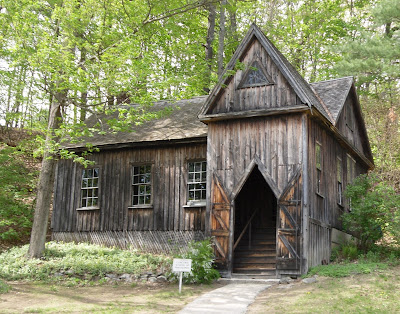Susan Cheever's American Bloomsbury: Louisa May Alcott, Ralph Waldo Emerson, Margaret Fuller, Nathaniel Hawthorne, and Henry David Thoreau: Their Lives, Their Loves, Their Work (New York: Simon & Schuster (2006)) gives the impression of a designed-for-Googling title, cramming in the important members of the writing set in Concord, Massachusetts. This book is not a critical analysis of the authors' works — that would be a whistlestop tour in just 200 pages — but it does manage to bring the main characters of a literary phenomenon to life very well.
The Concord phenomenon would not have been possible without the financial support of Emerson, who — thanks to the money he inherited from his first wife Ellen Tucker — provided assistance to the writers, as one of the many blunt chapter titles, 'Emerson Pays for Everything', makes quite clear.
This book is essentially a popular representation of a highly talented literary community concentrated in a very small area. It isn't a work of original research and relies, apart from some speculation, entirely on secondary sources. As the chapter title already mentioned suggests, this is also slightly sensationalized. And he words 'American Bloomsbury' of course suggest not just a concentration of great talent in a small area, but also bed-hopping, sex triangles, homosexuality, free thinking, etc.
How does that square with the reality of Concord? Was it a 19th century Bloomsbury, or is the title just a publisher's exaggeration? Apart from the concentration of talent, are there any other similarities to Bloomsbury? Yes and no. In both communities, we have the freshness of new ideas, the spirit of adventure, the break with the past, etc. But to suggest that Concord was a hotbed of wild sex — and not only the word 'Bloomsbury' does that, but also Cheever's titillating chapter titles 'Sex' and 'Margaret Fuller, the Sexy Muse' — is going way too far. The first sentence of 'Sex' points out that the 'more liberal ways' of the previous century were giving way to the 'uptight views' of the mid-nineteenth century, and the chapter itself — scarcely more than two pages in length — only speaks of one of the five writers in relation to sex outside marriage, and that's to speak of Hawthorne's fictional Hester Prynne!
Desire is abundant though: Lousia May Alcott falls first for natural man Thoreau, then philosopher Emerson; Thoreau falls for, well, several women; and Cheever's 'Sexy Muse' Fuller (incidentally the only one of the five not to be buried in Sleepy Hollow Cemetery, but Mount Auburn) gets both Hawthorne and Emerson's lusting after her. But through all this, there's not a scrap of proof any of the five heros spent any of their 'Transcendental Wild Oats', as Louisa humorously puts it, on any of their objects of desire.
If Margaret Fuller was a tantalizer, so is Susan Cheever. This is still well worth a read though — just don't be conned by the title.













































